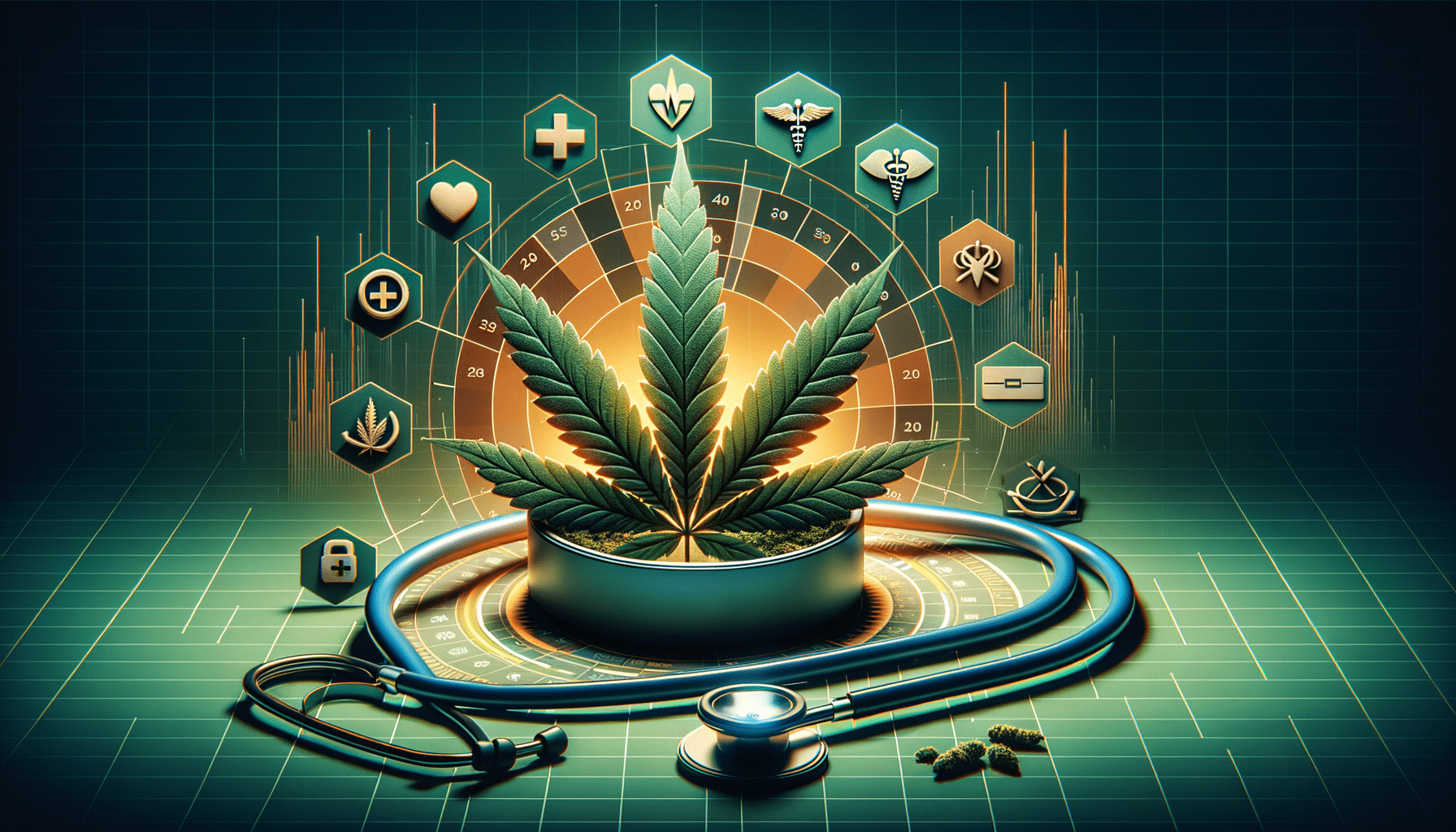
The Hemp THC Tug-of-War: Minnesota's AG Draws the Line
In the ever-evolving landscape of cannabis policy, a new battlefront has emerged, pitting state regulators against a burgeoning industry. Minnesota Attorney General Keith Ellison has found himself at the center of controversy after signing a bipartisan letter urging Congress to clamp down on hemp-derived THC products. This move, amid fierce pushback from hemp stakeholders, highlights the unintended consequences of federal legislation and the urgent need for clarity in a market that's grown wildly out of control. As of late October 2025, the debate rages on, blending public health concerns with economic realities in a state that's pioneered adult-use cannabis legalization.
Ellison's decision stems from a deep-seated commitment to Minnesota's regulated cannabis framework, which he helped shape. The state legalized adult-use marijuana in 2023, creating a structured market with safeguards like age restrictions and quality controls. Yet, a loophole in the 2018 Farm Bill has allowed intoxicating hemp products—such as delta-8 and delta-10 THC—to flood shelves without similar oversight. These synthetics, often more potent than traditional marijuana, are sold in gas stations and online, evading the rigorous standards applied to state-licensed edibles. Ellison defends his stance by emphasizing protection for consumers, particularly youth, stating that he supports Minnesota's THC edible industry but won't tolerate out-of-state entities preying on young Minnesotans with unregulated goods.
A Bipartisan Cry for Federal Intervention
The letter, dated October 24, 2025, and signed by 39 attorneys general from across the political spectrum, including Ellison, calls for Congress to redefine "hemp" under the 2018 Farm Bill. Addressed to key congressional leaders like Senators Susan Collins and John Boozman, it argues that the bill's ambiguity—limiting delta-9 THC to 0.3% on a dry-weight basis—has been exploited to produce highly psychoactive synthetics like THC-O and HHC. These aren't the benign industrial hemp products Congress envisioned; instead, they're "Frankenstein THC products" that intoxicate severely and are packaged as candies and gummies to appeal to children.
The signatories, led by AGs from Arkansas, Connecticut, Indiana, and Minnesota, highlight stark public health repercussions. In Indiana, for instance, cannabinoid exposures reported to poison control centers surged 41% from 2022 to 2024, with pediatric cases under age five rising 46% and those aged 6-12 jumping 62%. Incidents involving minor cannabinoids like delta-8 skyrocketed by 2,482% over the same period. Nationally, U.S. Poison Centers saw an 82% increase in delta-8 THC cases from 2021 to 2022, with symptoms including hallucinations, vomiting, anxiety, and loss of consciousness. The letter urges immediate action during the FY 2026 appropriations or Farm Bill reauthorization to prohibit intoxicating THC products while preserving non-intoxicating industrial hemp uses.
Industry's Fierce Resistance: Billions on the Brink
Hemp advocates aren't taking this lying down. The industry, which has ballooned into a multibillion-dollar behemoth, views the proposed ban as an existential threat. In Minnesota alone, annual sales of low-potency hemp edibles and beverages reached nearly $130 million last year, with over 4,300 registered products generating significant tax revenue. The state collected $10 million in taxes from hemp-derived THC sales in the first year of its 10% surcharge, underscoring the economic stakes.
Critics like State Rep. Nolan West argue that Ellison's endorsement could devastate jobs and innovation. Even retailers like Target have dipped into the market, selling hemp THC beverages in select stores. Federally, figures like Sen. Rand Paul decry the hypocrisy, noting that states with full marijuana legalization are pushing to ban hemp derivatives. Paul, who introduced the Hemp Economic Mobilization Plan Act to raise THC limits in hemp, warns that a blanket prohibition would harm farmers and consumers alike. Industry groups emphasize that regulated hemp products provide safer alternatives, but Ellison counters that the federal loophole lacks any quality controls, allowing potent imports to undermine Minnesota's system.
Unveiling the Hazards: From Poison Calls to Pediatric Perils
Beyond economics, the health risks paint a grim picture. Delta-8 THC, a flagship of these hemp derivatives, has triggered widespread adverse events. The FDA documented 104 reports of issues like tremors and confusion between late 2020 and early 2022, warning that these products pose serious threats due to unapproved manufacturing processes. In Minnesota, while specific incident data is sparse, national trends apply: over 11% of U.S. 12th graders reported using delta-8 last year, often without awareness of its potency or contaminants.
Children are particularly vulnerable. Poison control data reveals severe symptoms in kids, including drowsiness, vomiting, and even seizures, with some pediatric deaths linked to similar cannabinoids. The CDC has issued advisories on the rise in availability and adverse events, noting that delta-8's unregulated nature amplifies risks from harmful chemicals used in synthesis. Ellison's office stresses that without federal intervention, states can't stem the tide of mail-order products, leading to an uneven patchwork of protections that fails to safeguard public health.
Navigating the Crossroads: Policy Paths Ahead
As Congress grapples with this amid funding negotiations, the implications ripple far. A ban could stabilize regulated cannabis markets like Minnesota's, which projects $28 million in tax revenue, $6.1 million in fees, and $28 million in justice savings from full legalization. Yet, it might stifle hemp's agricultural potential, valued for textiles and biofuels. Ellison proposes a nuanced approach: a federal carve-out for states with strong regulations or an enforcement discretion memo akin to the Cole Memo, allowing compliant operations to thrive.
Opponents, including GOP heavyweights like Mitch McConnell—who ironically championed the 2018 Farm Bill—push for outright criminalization, clashing with libertarians like Paul. The debate underscores a broader tension: balancing innovation with safety in a post-prohibition era. Minnesota's hemp market grew 5.87% month-over-month since July 2023, signaling robust potential if regulated properly.
Closing the Loophole: A Call for Clarity and Caution
Ultimately, Ellison's defense isn't about stifling industry but restoring intent to the law. The 2018 Farm Bill aimed to foster non-intoxicating hemp, not a shadow market of synthetics endangering lives. With poison incidents soaring and billions in play, Congress must act decisively. Minnesota stands as a model, proving regulation works— but only if the federal foundation holds. As this saga unfolds, one thing's clear: the hemp THC debate is more than policy; it's about protecting futures amid profitable chaos.
In the wake of Minnesota Attorney General Keith Ellison's defense of a bipartisan letter urging Congress to ban intoxicating hemp THC products—like delta-8 and delta-10—amid industry pushback, savvy retailers are turning to reliable partners. With poison control reports surging 41% in states like Indiana and national delta-8 cases up 82%, unregulated products pose real risks to consumers and your business.
D Squared WorldWide stands out with our curated wholesale lineup of safe, lab-tested CBD, hemp, delta-8, mushroom-infused beverages, edibles, tinctures, and topicals. Backed by Nano Hemp Tech Labs, we ensure compliance and quality, helping you capitalize on the $130 million Minnesota hemp market while prioritizing health.
Don't let uncertainty disrupt your supply—schedule a call today to explore exclusive wholesale deals and boost your profits!
In the wake of Minnesota Attorney General Keith Ellison's defense of a bipartisan letter urging Congress to ban intoxicating hemp THC products—like delta-8 and delta-10—amid industry pushback, savvy retailers are turning to reliable partners. With poison control reports surging 41% in states like Indiana and national delta-8 cases up 82%, unregulated products pose real risks to consumers and your business.
D Squared WorldWide stands out with our curated wholesale lineup of safe, lab-tested CBD, hemp, delta-8, mushroom-infused beverages, edibles, tinctures, and topicals. Backed by Nano Hemp Tech Labs, we ensure compliance and quality, helping you capitalize on the $130 million Minnesota hemp market while prioritizing health.
Don't let uncertainty disrupt your supply—schedule a call today to explore exclusive wholesale deals and boost your profits!
Reference:
Coit, M. (2018). The fate of industrial hemp in the 2018 farm bill – will our collective ambivalence finally be resolved?. jflp, 14(1). https://doi.org/10.54119/jflp.bwcu3403
LoParco, C., Tillett, K., Chen‐Sankey, J., Berg, C., & Rossheim, M. (2024). Public health considerations about tetrahydrocannabinol‐infused beverages. Addiction, 120(1), 189-190. https://doi.org/10.1111/add.16676
Ortmeier‐Clarke, H., Laboski, C., Oliveira, M., Arneson, N., Conley, S., & Werle, R. (2023). Cultivar and management effects on industrial hemp yields in wisconsin. Agronomy Journal, 115(3), 1335-1343. https://doi.org/10.1002/agj2.21297



